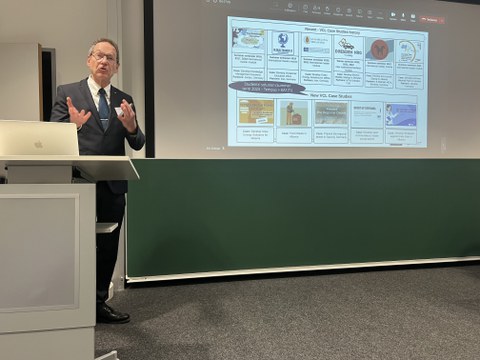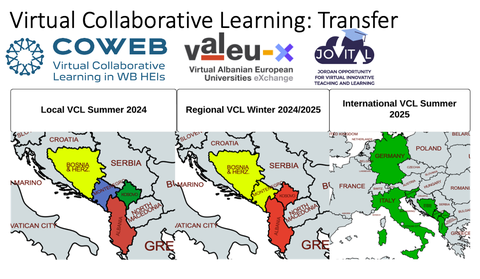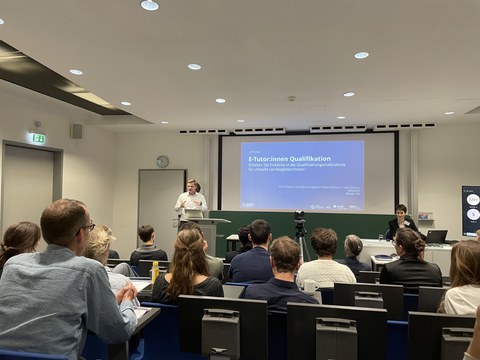Nov 20, 2023
COWEB Project Showcases Innovations in Virtual Collaborative Learning at Academic Conferences
In a bid to enhance collaborative learning experiences in the academic realm, the Collaborative Online Western Balkan (COWEB) project recently took center stage at two prominent conferences, shedding light on its innovative approach to Virtual Collaborative Learning (VCL).
The first of the two conferences, titled "Räume und Lernwelten - Prospektiven auf die Gestaltung der Hochschullehre," unfolded on November 6th and 7th, 2023. During this event, the COWEB project was showcased, emphasizing its implementation of collaborative online international learning (COIL) within the standard curriculum at TU Dresden. Professor Dr. Eric Schoop spearheaded the presentation, delving into the details of COIL modules within the Virtual Collaborative Learning Framework. Notably, Prof. Schoop highlighted the project's successful expansion of this pedagogical approach to the Western Balkan Area, a significant milestone within the COWEB initiative.
The presentation at the DIU Conference outlined a three-step approach, encompassing the implementation of local, regional, and international VCLs within the COWEB project consortium. This method aims to establish a comprehensive Virtual Collaborative Learning ecosystem, fostering educational exchange and cooperation across borders. This kind of transfer has also been accomplished within the JOVITAL and VALEU-X project.
A week later, the COWEB project made waves at the European Open and Digital Learning Week (EODLW) in the session titled "Education in the Digital Age: What Can We Do Better?" Specifically featured in the "Open Educational Resources (OER) for Collaborative Online & Distance Education and Exchange" segment from November 6th to 10th, 2023, the project was spotlighted as a beacon of effective COIL module design.
Mattis Altmann led the presentation, providing insights into the intricacies of crafting COIL modules using the COWEB project as a practical case study. Altmann elucidated the transfer process of COIL modules to the Western Balkan area, further underlining the project's commitment to disseminating effective collaborative learning methodologies beyond traditional boundaries.
The COWEB project's dual presence at these conferences not only showcased its accomplishments in the realm of Virtual Collaborative Learning but also served as an inspiration for educators and institutions looking to enhance global educational exchanges. The emphasis on practical examples and the transferability of COIL modules underscored the project's commitment to fostering international collaboration in the field of higher education.



